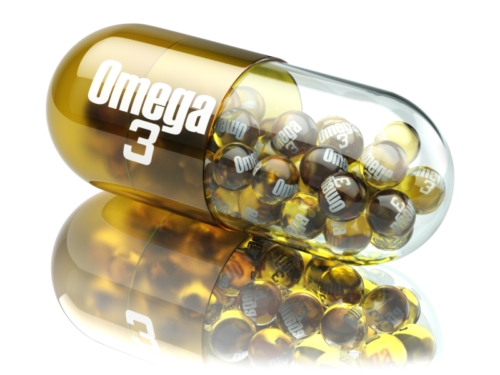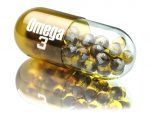
A new meta-analysis, performed by researchers from Harvard and the University of Melbourne, has been released.
Researchers concluded that fish oil and vitamin D supplements are capable of strengthening the effects of certain antidepressants.
While this suggests a relatively safe way to help people who don’t see a normal response from antidepressants, people need to be cautious and not try self-boosting at home.
A meta-analysis is best understood as a “study of studies”. It collects the findings of a set number of studies on a given topic and tries to draw a definitive conclusion.
The advantage of a meta-analysis is that it gives a bird’s eye view of the scientific literature and is one of the ways in which definitive conclusions can attempt to be drawn.
The disadvantage is that a meta-analysis can be thrown off depending on which studies are included in them. The quality of a meta-analysis is inherently dependent on the quality of the studies it surveys.
Omega-3 and Vitamin D Meta-Analysis: Summary
- The analysis looked at 40 studies that examined supportive use of nutrient supplements for depression alongside the main types of antidepressants
- Among studies that had replicable results, only four supplements showed the ability to significantly improve the effects of antidepressants over a placebo supplement
- Depression symptoms were assessed using the Hamilton Depression Rating Scale, a standard measure. This helped mitigate part of the risk of a self-reporting bias
- The strongest support was found for omega-3 supplements derived from fish oil
- Vitamin D, methylfolate (type of B vitamin related to folic acid), and S-Adenosylmethionine (SAMe) also showed noticeable supportive effects, but not as strong as omega 3
Why This Matters
Not all patients respond the same to antidepressants, particularly in the more severe cases. Unfortunately, there is a limit to how high a dosage can be raised due to safety concerns.
The ability to use a supplement of vitamin D or omega 3 as a way to improve the effectiveness of an antidepressant (without a dosage adjustment) could potentially be a safe way to bring needed relief to many suffering from treatment-resistant depression.
Having said that, consumers should really, really not try doing this at home.
Why Caution is Needed
There are several reasons why, no matter how promising this analysis may seem or how much hope it may offer to patients with depression, consumers should not attempt to get their own supplements in the hope of boosting their antidepressants.
- Supplements are almost entirely unregulated and lack any standardization, purity controls, or safety measures to ensure what’s on the label is actually (and only) what is in the bottle. Getting just any omega 3 or vitamin D supplement off the shelf is generally inadvisable
- One of the downsides of a meta-analysis is that the component studies would not have used consistent amounts of antidepressants or supplements. More research would be needed to figure out how much vitamin D or omega 3 would be ideal for getting the best effect
- It is also not known if there are other factors that may impact how well the supplements could boost antidepressant effects
- The fact that these nutrient supplements seem to amplify antidepressants means that they are affecting the body’s sensitivity or absorption of the drug. This means there is a potential risk of triggering unwanted side effects, especially combined with the supplement reliability issue described above if people start taking whatever amounts of supplements they think might work
Bottom Line
- Omega 3 from fish oil and to a lesser extent vitamin D, methylfolate, and adenosylmethionine supplements may help boost the effects of antidepressants
- Which antidepressants and how much supplements are needed is not entirely clear at this time
- People should not try self-boosting and should definitely talk to their doctor if this is an effect they are curious about trying
- On the other hand, trying to improve dietary sources of omega 3 or vitamin D is most likely safe
Related:
Sources:
Stetka, B., “Do Vitamins and Supplements Make Antidepressants More Effective?” Scientific American web site, April 26, 2016; http://www.scientificamerican.com/article/do-vitamins-and-supplements-make-antidepressants-more-effective/, last accessed April 27, 2016.
Sarris, J., et. al., “Adjunctive Nutraceuticals for Depression: A Systematic Review and Meta-Analyses,” The American Journal of Psychiatry, 2016; http://dx.doi.org/10.1176/appi.ajp.2016.15091228.













